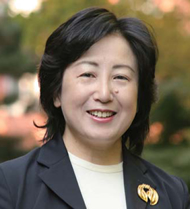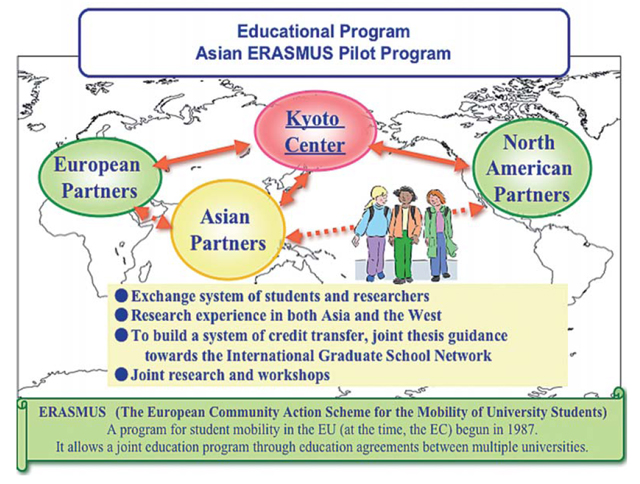Global Center of Excellence (GCOE) Programs
Reconstruction of the Intimate and Public Spheres in 21st Century Asia

Program Leader:
Prof. Emiko OCHIAI
Put simply, the ‘intimate sphere’ refers to the realm of people who are bound together in special relationships of love and care. The concept has been used often by social scientists in recent years. Since the 1970s many regions of the world have seen their family units transformed and diversified, with an increasing number of people opting for life-styles which do not fit neatly into the traditional family mold. The concept of the ‘intimate sphere’ was put forward as an alternative means to express the realm of private lives in its most basic form.
The opposite of the ‘intimate sphere’ is the public sphere, but in the present age the boundary between the intimate and public spheres is sometimes fluid, and is characterized by the profound influence the two spheres exert on each other, and the way both of them are continually being transformed. ‘Global householding’, where a family member goes to live abroad for work, education or marriage, or where a foreigner comes to live with a family as a domestic or care worker, is no longer rare. Frequent human migration resulting from globalization demands a fundamental reassessment of the frameworks for sending and receiving countries, which includes their welfare and citizenship.
Our objectives at GCOE are to clarify the mechanisms of this ‘reconstruction of the intimate and public spheres’ which is developing on a global scale, to predict the future directions the changes will take, and to make proposals for improvement. To these ends, we need inter-disciplinary collaboration between social science and its allied fields, and a global research partnership, as well as global and interdisciplinary educational practices.
One of our flagship projects at GCOE is the Asian ERASMUS Pilot Project. Research institutes and universities in Asia, Europe and America, at present (February 2009) numbering 13 institutions from 12 regions, have become our Overseas Partner Institutions, and there are frequent exchanges between next generation researchers and of teaching staff. We shall build a system whereby next generation researchers can gain research experience overseas while doing their doctorate or post-doctoral research, and receive research supervision from both Asian and European or American teachers, either in Kyoto or at a partner center overseas.
We are experimenting with this venture as an Asian version of the EU’s ERASMUS (European Region Action Scheme for the Mobility of University Students) Project. We are confident that, starting with this effort, we can forge an intellectual common base, first in Asia and then globally; we can nurture an alumni network across national borders, and develop numerous highly productive international joint research projects.


